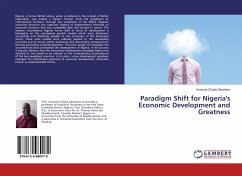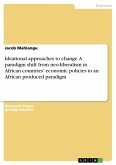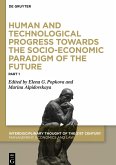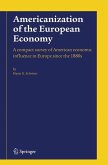Nigeria, a former British colony, when considered in the context of British imperialism, was indeed a trader's frontier. From the standpoint of international investors, through the subsidiaries of her MNCS, Nigeria's economic structure was captured. Nigeria at independence inherited an economic structure that was completely alien and enclave in nature. The adverse circumstance Nigeria found itself in terms of development is blameable on the neoclassical growth models which were fashioned, successfully and effectively applied to the economics of the developed world. These same models were callously applied to the developing countries and of course within stuadverse and rebounding consequences, thereby promoting underdevelopment. This work sought to investigate the circumstances that constrained the development of Nigeria. In the process it became oblivious that the neoclassical development paradigm Nigeria has clinched to, has seized to be relevant to the contemporary circumstances of the less developed countries. In its place, a new development paradigm emerged the institutional approach to economic development, otherwise known as associationalist theory.
Bitte wählen Sie Ihr Anliegen aus.
Rechnungen
Retourenschein anfordern
Bestellstatus
Storno








